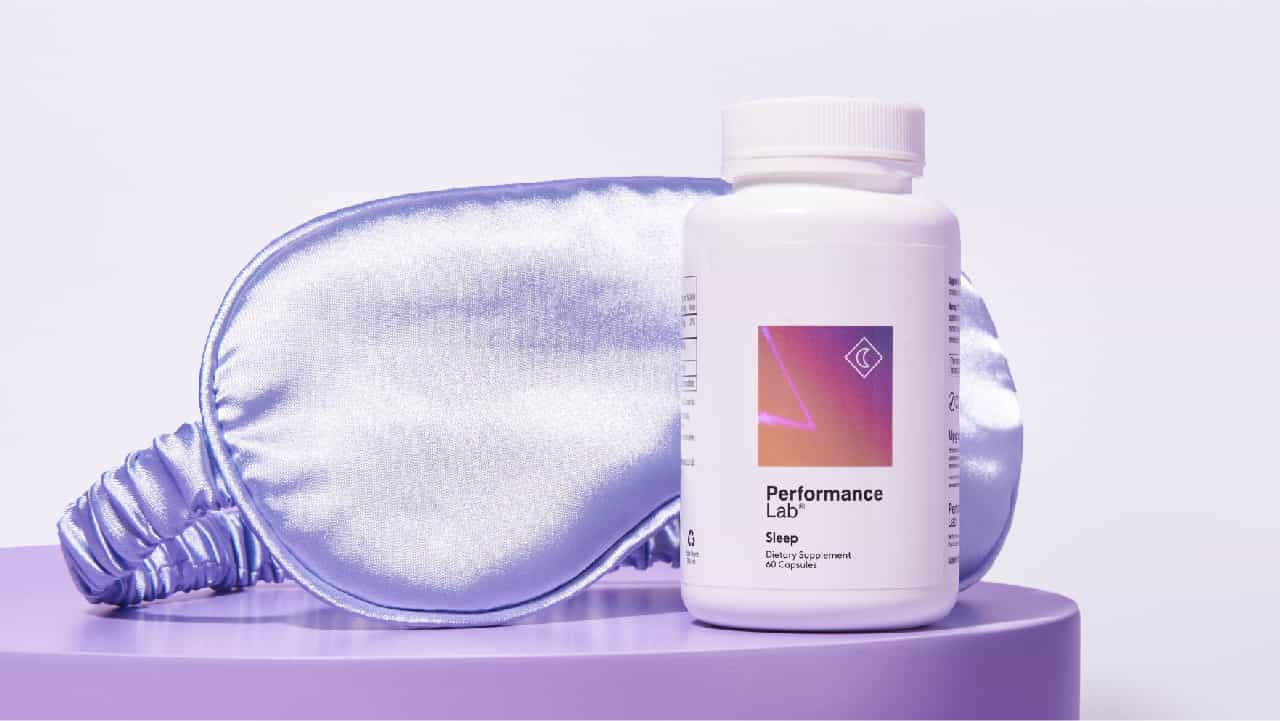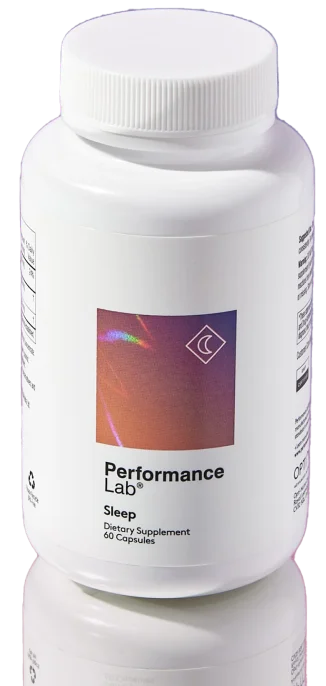Today's world is full of stressors, but could a simple botanical herb from the mint family be a powerful stress-relief ally? Lemon balm, also known as Melissa officinalis or garden balm, has been used in food and herbal medicine for thousands of years, famed as a calming herb.
Traditionally used for anxiety, stress, sleep, depressive symptoms, cognitive performance, digestive issues and more, modern science is also recognising its potential to promote relaxation.
Potentially making it an important aspect of integrative and alternative medicine.
According to the European Medicines Agency, its traditional use for the relief of 'mild symptoms of mental stress and to aid sleep' has been well documented. (1)
Now that's a powerful combination - a single herb that potentially offers both stress AND sleep benefits. Anxiety can be connected with sleep deprivation and insomnia, so a herb that calms and helps sleep is a double-win.
In the past few decades, numerous clinical trials have been carried out into the herb, and today we're going to look at lemon's balm's link with anxiety and stress management.
Examining modern science's opinion on one of the most popular traditionally used anxiolytic botanicals (stress-relieving herbs) around.
Forms of Lemon Balm

Before we discuss the potential health benefits of this calming herb from the mint family and it's potential role in integrative medicine, it's worth knowing what form the herb is sold in.
The good news is that it is flexible - used in foods and drinks for hundreds of years, it is also sold as lemon balm cream, lemon balm oil, liquid extract, powder, essential oil, and herbal supplements.
You can also make your own lemon balm tea using lemon balm leaves or dried lemon balm herb. Lemon balm is often sold with other natural remedies, such as Valerian.
The form you choose will depend on personal preference or the reason for use.
Lemon balm cream, for instance, is often sold for skincare or cold sores caused by the herpes simplex virus. Lemon balm leaves, in contrast, may be used to flavour food.
Some people add a couple of drops of lemon balm essential oil to moisturizing lotions (be sure to dilute any essential oil before applying directly to the skin). Lemon balm is also sold in supplement or capsule form.
Let's move on to examine in more detail what lemon balm may be able to do...
Health Benefits of Lemon Balm Melissa Officinalis

Lemon balm has been used for centuries to help with anxiety, mood and cognitive performance, sleep disorders, and more. It is currently also being used in cognitive drug research.
Let's examine the potential benefits of lemon balm.
Lemon balm and lemon balm containing foods may...
-
Help to reduce stress and anxiety and boost mood, thanks to its ability to increase GABA, the neurotransmitter in the brain that helps to promote calm. More on this shortly. (2)
-
Offer support for depressive symptoms, as suggested by a 2021 meta-analysis of available studies. (3)
-
Protect cells and tissues from oxidative stress and inflammation that can cause the likes of cancer, cardiovascular disease, Alzheimer's Disease, arthritis, and more. Experts theorise that's because of its rosmarinic acid content, a powerful antioxidant and anti-inflammatory. (4, 5)
-
Improve sleep quality, hasten sleep onset (how fast you fall asleep) and increase sleep duration (how long you actually sleep). (6, 7) Again, let me point out that anxiety and mood is hugely influenced by how much sleep you get, and the quality of that sleep.
-
Relieve bloating and mild stomach issues. (8)
-
Reduce LDL cholesterol ('bad' cholesterol) while also tackling triglyceride levels and reducing total cholesterol. (9)
-
Ease PMS symptoms, according to research done on young women. However, the research sample size was small and needs a wider age base. (10)
-
Reduce symptoms and help heal cold sores caused by the herpes simplex virus. A traditional use of the herb and also proven in scientific tests, lemon balm may support healing and reduce the pain of cold sores. (11)
-
Support cardiovascular health by reducing cholesterol, stabilising blood pressure and may reduce heart palpitations. Most research on this has been carried out on animals; more research on humans is needed. (12, 13).
-
Have a supportive effect on cognitive function and dementia. A meta-study of lemon balm concluded that seven of eight studies showed evidence that lemon balm helped either mood, cognitive function or both in people with dementia. We would welcome more research on this. (14)
Reading through this list makes it sound like lemon balm is a wonder herb, doesn't it?
That may be proven true in the near future, and we'll discuss scientific research into lemon balm in more detail shortly.
But first, shall we take a look at HOW lemon balm (Melissa officinalis) works?
Anti-Stress Effects of Lemon Balm: Mechanism of Action

I could tell you that lemon balm extract has anti-stress effects and expect you to believe me.
But I suspect the more inquisitive of you would like to know exactly HOW it might work, so let's examine it...
Lemon Balm's Role in Managing Stress
Lemon balm can help you manage stress by boosting GABA activity in the brain.
GABA - full name gamma-aminobutyric acid - is a neurotransmitter that helps to calm the central nervous system by blocking certain brain signals.
It is believed to control or lessen nerve cell hyperactivity associated with fear, anxiety and stress.
Rosmarinic acid in lemon balm can block enzymes that break down GABA, while other compounds in the herb can bind with it, increasing GABA's influence. (15, 16)
In addition to its direct impact on stress, lemon balm also works in other ways to help both physical and mental wellbeing, such as...
Anti-Oxidant Benefits
Lemon balm's anti-oxidant properties - courtesy of flavonoids, essential oils and phenolic compounds - help to protect cells from damage caused by free radicals and oxidative stress. (17)
Anti-Inflammatory Benefits
Lemon balm is thought to possess anti-inflammatory properties, specifically the ability to suppress pro-inflammatory cytokines. Clear as mud, right?
Allow me to explain: Cytokines are proteins that act as chemical messengers in the immune system, ready to call your immune cells into action if germs enter the body. They are what help you fight infection, your little soldiers.
However, too much inflammation is a bad thing and can cause long-term illnesses and disease. So, stopping your body's inflammatory response is just as important as kickstarting it when needed.
That's where lemon balm comes in.
The herb helps to restrain the pro-inflammatory cytokines that like to trigger or heighten inflammation, as well as balance the various enzymes involved in inflammation. (18,19)
Lemon Balm's Influence on Gut Microbiota
Lemon balm's anti-inflammatory, antioxidant and antimicrobial properties have been shown to influence gut microbiota, the miniature ecosystem or biome inside our intestines.
I like to think of it as a lovely garden full of diverse plants and organisms that provide medicine and food to the body. When the garden thrives, so do you.
However, when weeds get out of control, for instance, or the soil is polluted, the whole ecosystem is out of balance, and you don't feel well.
Luckily, lemon balm may help to keep a healthier microbial balance. Some studies suggest lemon balm may also have prebiotic effects and encourage beneficial gut bacteria.
Why is this important?
The gut-brain axis or link has been recognised for a long while, and studies suggest gut microbiota may be linked to anxiety, depression and other stress-related conditions.
This has primarily been seen in animal trials; more human trials are needed. (20,21)
Talking of clinical trials, let's look at some important studies examining lemon balm's influence on stress, anxiety and sleep...
Lemon Balm Clinical Trials and Research

Perhaps one of the most comprehensive meta-studies into lemon balm to date - examining past clinical trials, including double-blind, placebo-controlled trials, and surveys - was carried out by the University of Reading in 2024.
This focused on the herb specifically as it referred to psychological well-being and mental health.
It concluded that lemon balm could be a safe and effective treatment for...
-
The prevention of, and helping to manage, symptoms of sleep disturbances
-
Helping with anxiety
-
Boosting a low mood
-
Improving overall quality of life. (22)
Sounds like a very useful herb.
The following is some of the research they considered as part of their meta-analysis, and to be fair, it's only a small sample of their entire study.
If you want to read the full analysis, you can read it here
YOUNG ADULTS 18-30
-
Young women suffering from PMS symptoms reported that 500mg of lemon balm twice a day helped to reduce depression, anxiety and sleep disturbance. Measured by Quality-of-Life (QQL) scores (self-assessed). This was a small study done on young female students; more research is welcome. (23)
ADULTS 31-55
-
Following two weeks' worth of supplementation with 1000mg a day of lemon balm, symptoms of anxiety, depression and sleep problems were significantly reduced. This study involved participants with benign heart palpitations, originally the focus of the test. (FYI, the lemon balm capsules also demonstrated a 'significant decrease' in heart palpitation frequency, though not severity). (24)
-
Another study of depressed patients found that 2000mg of lemon balm daily demonstrated a significant antidepressant effect over two months. Researchers concluded this was similar to the effect of fluoxetine (Prozac) in mild to moderate depression, but called for larger trials to be sure. (25). As always, anyone with serious depression should see a healthcare professional.
SLEEP STUDIES: Let's talk about sleep for a second. As I said at the beginning of this article, sleep, mood, depression, and anxiety are all interconnected.
Anxiety, for instance, can be caused by insomnia or sleep deprivation. (26) Lemon balm's sleep-enhancing properties can spill over into other areas, so let's examine them...
One three-week-long study of lemon balm (400mg a day) by middle-aged adults with moderate depression, stress, anxiety or sleep problems showed significant improvements in sleep quality and mood measures, particularly in those experiencing negative mood.
Specifically, it improved depressive symptoms, anxiety and stress scores, as well as sleep. The researchers also state that it improved the quality of life and overall mental health or well-being of participants. (27)
OLDER ADULTS OVER 55

Several clinical trials have looked at how the calming effects of lemon balm can help older adults experiencing psychological symptoms caused by an ongoing heart condition.
They state that lemon balm supplementation has been shown to help reduce anxiety and stress, as well as sleep disturbance.
The meta-study I mentioned above concludes that lemon balm appears to deliver mood-enhancing and cognitive boosts in older adults with and without other health conditions, after just seven days of supplementation.
Results are less clear, however, for older adults with neurodegenerative issues, and longer-term studies are needed on this. (28)
ALL AGES
One last scientific study which applies to all ages. One 15-day open trial with 600mg of lemon balm supplementation a day was shown to improve anxiety manifestations and anxiety-related symptoms in adults with mild insomnia and anxiety.
Agitation was noticeably reduced after taking lemon balm, as were feelings of guilt and inferiority.
In addition, chronic supplementation of lemon balm also appeared to reduce scores of insomnia and depression (captured by the Hamilton Depression Scale) and to prevent relapse. (70% achieved full remission for anxiety). (29)
It's worth pointing out that this was a small study with just 20 participants, but it is one of several that seem to show similar results.
Again, our meta-analysis concluded that lemon balm showed reasonable evidence of its ability to alleviate sleep problems, reduce mild psychological disturbance and improve cognitive performance and mood across all age groups. (30)
Safety and Precautions of Lemon Balm Extract

Lemon balm has been used in herbal medicine for more than 2000 years, with little to no reports of adverse effects.
Lemon balm is on the Food and Drug Administration's GRAS list - Generally Recognised as Safe. (31)
It's also a Class 1 herb in the Botanical Safety Handbook - meaning it should be safe when used correctly. (32) Examine.com also talks about its' excellent safety record' (33)
Lemon balm is usually well tolerated if you use it correctly. That's not to say that there aren't any side effects associated with lemon balm extract.
Potential Side Effects and Interactions with Lemon Balm
Side effects of lemon balm are usually rare, but can include increased appetite, abdominal pain, upset stomach, sickness, diarrhea, dizziness, headaches, and wheezing.
These are usually rare, mild and temporary. Some people, however, may have an allergic reaction or hypersensitivity to lemon balm.
Topical lemon balm may also cause skin irritation in some people. Note too that lemon balm may reduce alertness due to its sedative effect. (34, 35)
Lemon balm is also known to interact with some prescription or over-the-counter medications.
They include sedatives (lemon balm has its own sedative effect, so don't mix and match them) and alcohol (for the same reason).
It may also interact or interfere with antidepressants or SSRIs, thyroid medications, and HIV medicines. (36, 37)
If you take any of the above, please speak to your doctor before taking any product containing lemon balm.
In addition, lemon balm may interfere with intraocular pressure so people with glaucoma should be careful, and its safety has not been assessed in pregnant or breastfeeding women, so they are advised to avoid it.
We also wouldn't recommend it for children due to a lack of studies on that age group.
How Much Lemon Balm Should You Take?
There is no official dosage set for lemon balm, but the European Medicines Agency (EMA) has published a suggested dosage for adults.
They suggest no more than 1-3 cups of lemon balm tea a day (made with 1.5 -4.5g of the herb); liquid extract 1-3 times a day (2-4ml); powder 2-3 times a day (0.19-0.55g). (38)
Lemon balm capsules are believed to be safe when used up to 500mg a day. (39)
Best Lemon Balm Supplement

As I mentioned earlier, there are various different ways to take lemon balm, but perhaps one of the easiest is via supplement.
Lemon balm is often mixed with other herbs and ingredients to strengthen its sleep or stress benefits.
Supplements also have the benefit of having a ready-made dosage - there should be no need to worry about taking too much if you buy a quality product and follow the instructions.
We would recommend Performance Lab Sleep for this. It includes 200mg of lemon balm extract, alongside Montmorency cherry for a natural low-dose of melatonin, the 'sleep hormone'.
Sleep also includes magnesium to ease muscles, and tryptophan to help boost your own natural melatonin.
It is non-habit forming and a super clean formula.


Final Thoughts
If you're looking for natural plant extracts to help with sleep or stress management, lemon balm would seem to be a good choice.
Not only has it been used and trusted for centuries in food and herbal medicine, it also has a strong safety record and is being recognised by modern science.
Trials have proven its potential to help with stress management, negative mood and cognitive performance, sleep disturbances, and more.














